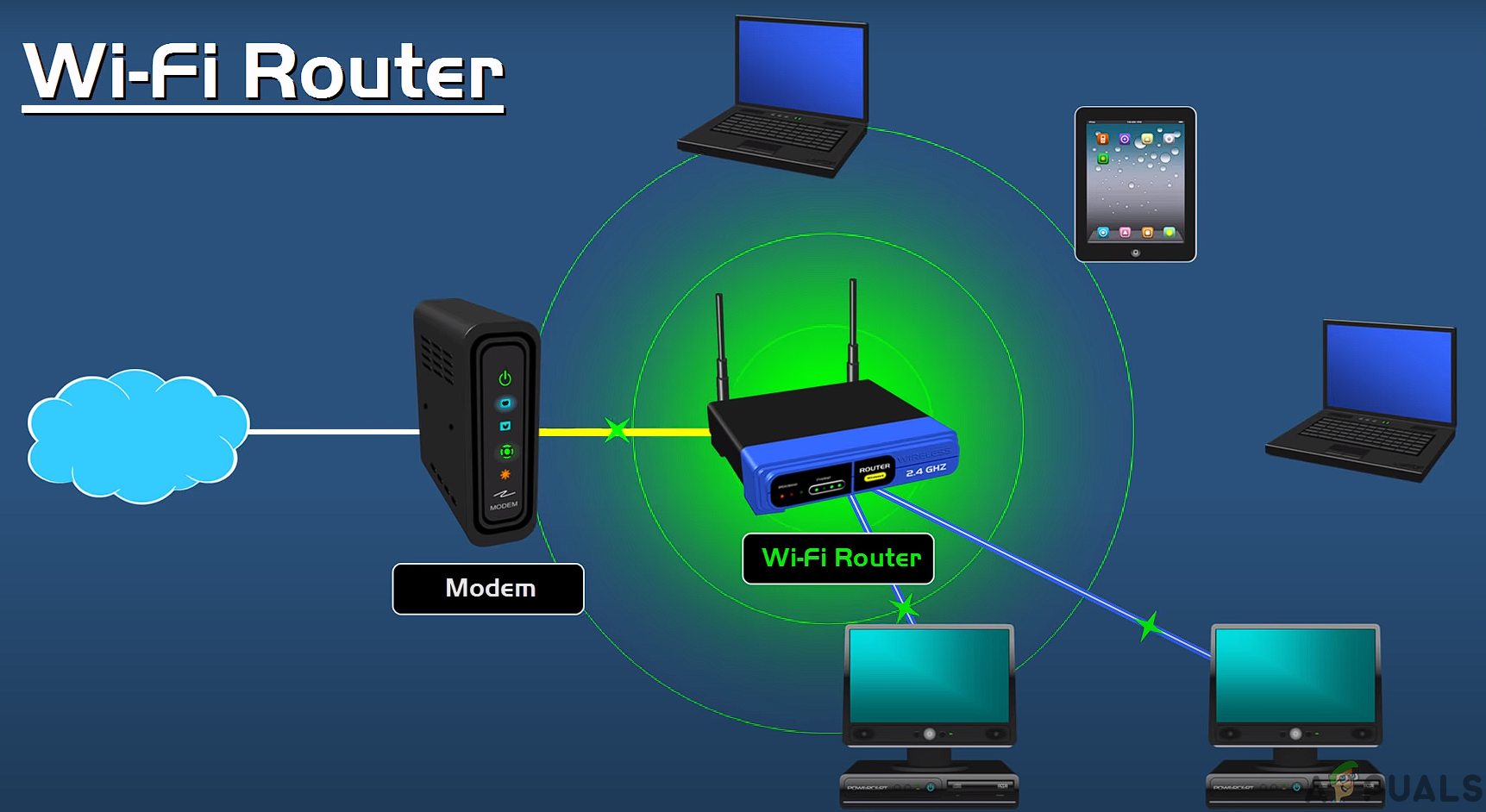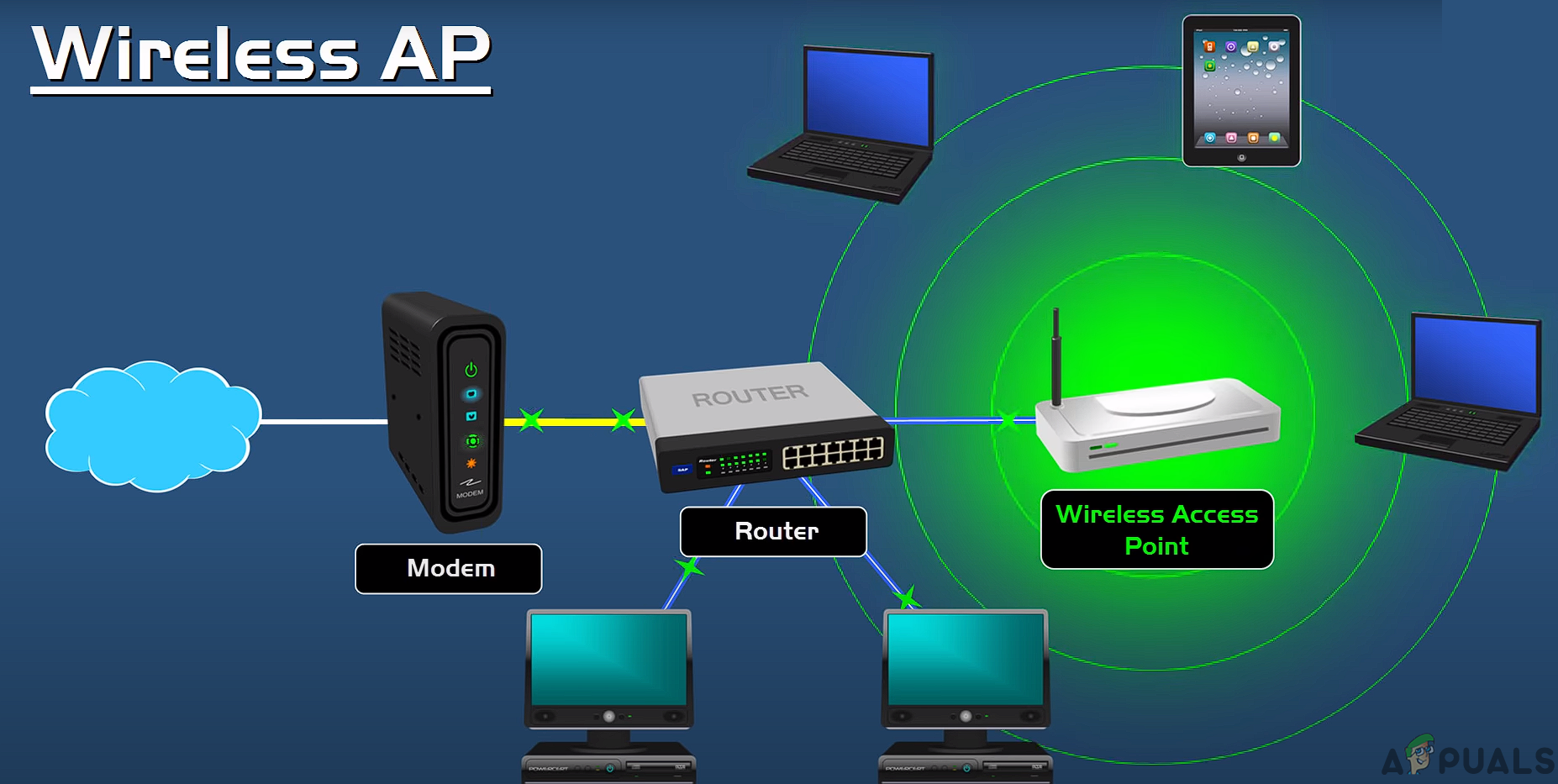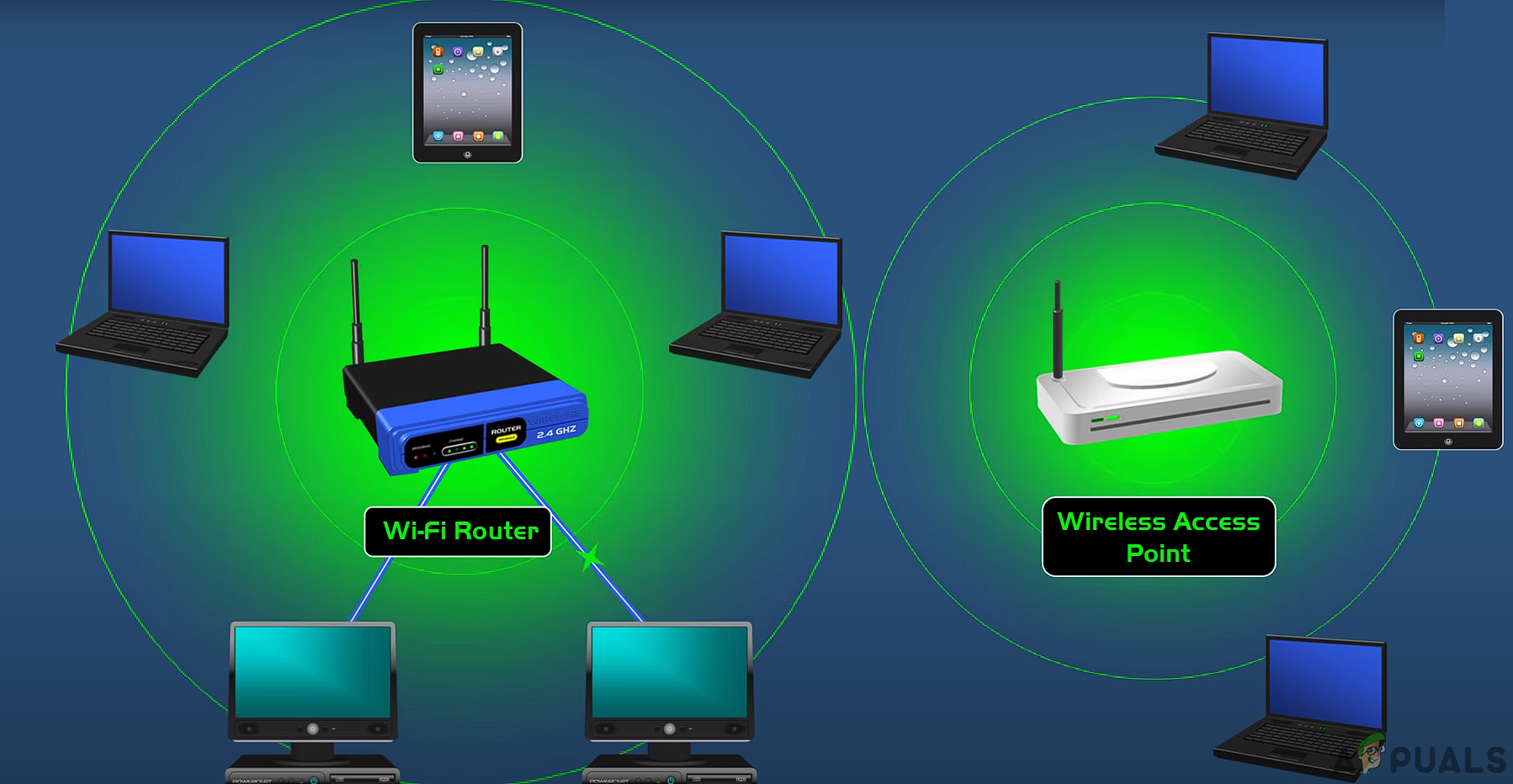What is Difference Between Wireless Router and Wireless Access Point?
These days most of the devices connect to the internet wirelessly. A wireless router can be found almost at every home. For home users that is pretty much enough to complete their needs as the signals reach all around the house. Which is why the users may not know about wireless access point or wondering about how it is different from the wireless router. Both of the devices help the users to connect to the WiFi network. However, they are not the same and work a bit differently.

What is a Wireless Router?
A router is a device that is used for forwarding the internet connection to all the connected devices. A WiFi combines the networking functions of a router and a wireless access point. A wireless router (or WiFi router) works much like a wired router, but it replaces wires with wireless radio signals. These devices look like small boxes with several short antennas to help with the signals at home or office. The farther the user will be from the wireless router, the weaker the signal will get. Wireless routers can function as an internet router, a switch, and an access point. Users connected to a wireless router will be able to access both LAN and WAN. Depending on the wireless router, it can support from a few to hundreds of users.

Most of the wireless routers can also function as a firewall, through which users can monitor, block, control, and filter the incoming and outgoing network traffic. The wireless routers have been improved in recent years, allowing more devices to connect and providing more bandwidth.
What is a Wireless Access Point?
A wireless access point or just an access point is networking hardware that allows WiFi devices to connect to a wired network. A wireless access point connects to a wired router via Ethernet and then provides a WiFi signal in that area. An access point can manage over 60 simultaneous connections. It helps the users that are out of range of the router by providing them a WiFi signal.

Large buildings and areas require access points in different locations so that users can roam freely from one place to another without experiencing network interruptions. As users move from one place to another, their devices also shift from one access point to the next without dropping the connection. The users won’t even realize when they are switching networks.
Difference Between Wireless Router and Wireless Access Point
Wireless routers are used in home and small offices, where all users can be connected through a single router. Wireless Access Points are used in a larger enterprise, where the area is large for one router to cover. Most large businesses will require many access points to provides services. Even if the wireless router covers the area, there will still be weak WiFi signals and dead spots in the area. The access point can help with the dead spots and extending a wireless network. The router acts as a hub that sets up a local area network and the access point is a sub-device within the local area network that provides another location for devices.

A wireless router can work as an access point, but not all access points can work as routers. A router operates between different networks and routes traffic between them. Whereas an access point will only operate in a single network and is used to wirelessly extend your existing network. The wireless router will have a WAN (internet) port, whereas an access point will not have a WAN port.
In conclusion, a router can equally distribute data across all users, manage routing across a network, resolve DNS, manage a connection to an ISP, and can be a firewall. An access point is just a device that is connected to a router or switch that allows users to wirelessly access the network.





